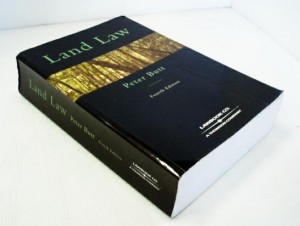(Eastandard)--Prof Hastings Okoth-Ogendo died last month hours after his groundbreaking draft, ‘Framework and guidelines on land policy in Africa’, was approved by a conference of African Union ministers of land and agriculture.
Ogendo was the chairman of the African Union Commission taskforce established in 2006 to develop land policy guidelines. Hours before he fell ill and died in Addis Ababa, Ethiopia, Ogendo had just presented the draft policy to a joint conference of AU ministers of agriculture, land and livestock. The draft will be presented to the AU Assembly of heads of State for approval in July. Ogendo’s taskforce also comprised Africa Development Bank, the UN Economic Commission on Africa and civil society.
‘He pushed himself hard and was passionate about producing land policy guidelines for Africa. He wanted to see the mission succeed. For him, seeing the draft adopted by the conference of AU ministers was a mission accomplished,’ says Mr Ebrahim Mwathane. Mwathane, a former chairman of the Institution of Surveyors of Kenya, was a member of the Ogendo task force that had representatives from the five regional economic blocs – Eastern, Southern, Central, Western and Northern Africa. Africa is plagued by numerous conflicts over land access, use and control among communities, and foreign interests that stoke fears of dispossession.
For instance, the acquisition of estimated 15-20 million hectares of land in Africa by commercial interests from outside the continent has led to fears of a ‘Second Scramble for Africa’. Kenya is still reeling from the aftermath of bloody ethnic violence, deeply rooted in simmering historical land disputes ignited by the disputed 2007 General Election. It left about 1,200 dead, thousands displaced, property worth millions of shillings destroyed and farming disrupted. Kenya has no land policy and uses laws drafted in colonial days.
The discovery and competition for fossil oil deposits, precious minerals and access, use and control of coastlines is also to blame for escalation and persistence of many bloody conflicts on the continent. Southern Sudan, Darfur, DR Congo, Western Sahara, Niger Delta are just a few. The arrival of China and Middle East commercial interests with their scramble for scarce agricultural land to grow food for their home populations has raised concerns about new conflicts between foreign interests and Africa’s food needs.
For instance, the Kenya Government is under intense pressure to review a controversial lease last year of 40,000 hectares to a Qatari corporation to grow fruits and vegetables for its citizens. Qatar enticed Kenya with a promise to develop a $2.4 billion port in Lamu. Mozambicans are up in arms against their government’s decision to lease agricultural land for settlement of thousands of Chinese working on land acquired by Chinese State corporations to grow food. Experts warn African governments to tread cautiously on the deals, especially due to weak legal environments and absent national land policies. Those calling for caution include the Rome-based Food and Agriculture Organisation that has warned acquisition of diminishing arable land in Africa by foreign corporations could worsen depressed food supply.
Proposed law
Among others, the AU draft says it seeks to provide basis for African States to formulate sound land policies that facilitate and assure social stability, economic growth, and environmental protection. It also aims to promote consensus for shared principles as the basis for securing access to land for all users and popular participation and formulation of land policies. The draft also suggests standards for best practices for land policy reforms, among others.
The draft says the failure to resolve historical claims in Kenya, Zimbabwe and South Africa remains a primary source of conflicts. ‘In other parts of Africa, such as mineral rich nations like Angola, the DRC, Southern Sudan, Sierra Leone and Liberia, land conflicts spurred by global commercial interests have been intense,’ the draft says. It also says: ‘In Uganda, Rwanda, Burundi, Somalia, Central Africa Republic, Republic of Congo (Brazzaville) and Ivory Coast, persistent conflicts in the last decade have produced large numbers of internally displaced persons raising complex issues about access to land, resettlement and rehabilitation.’











